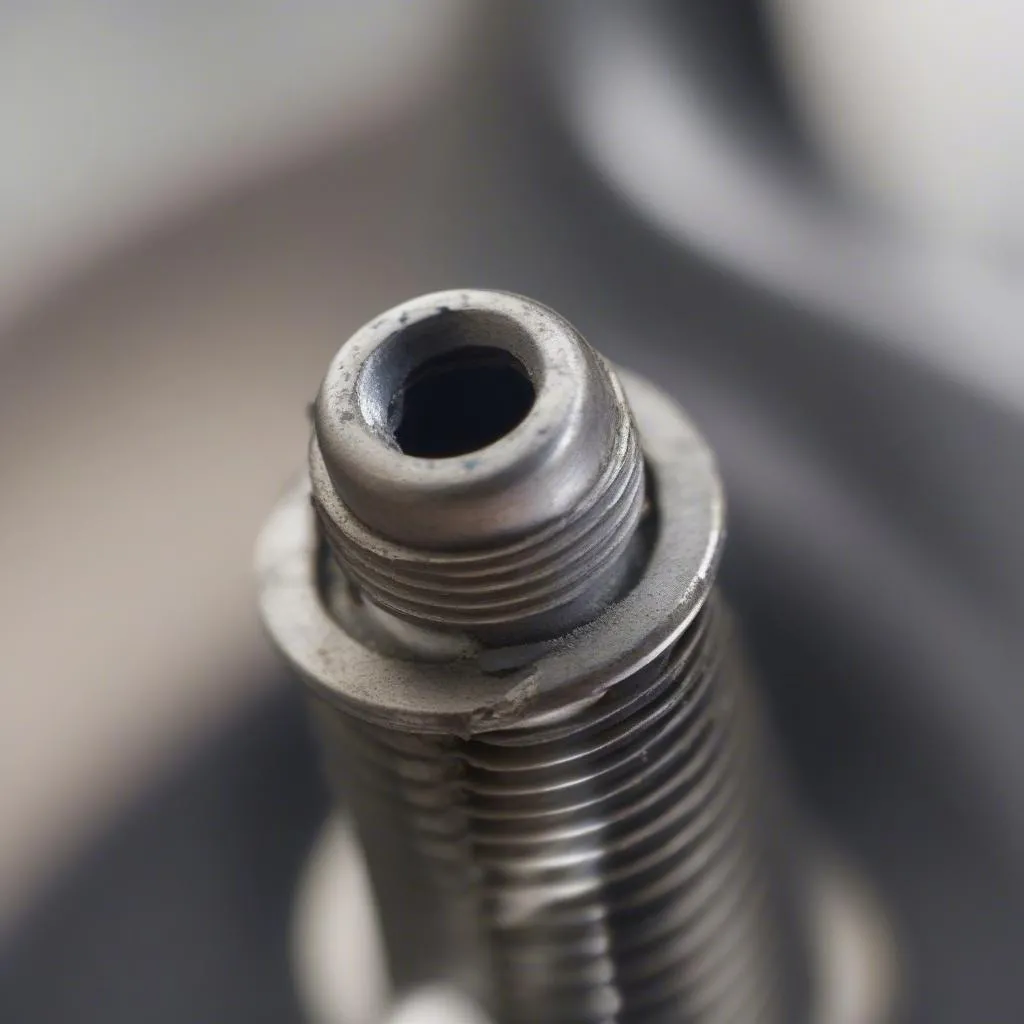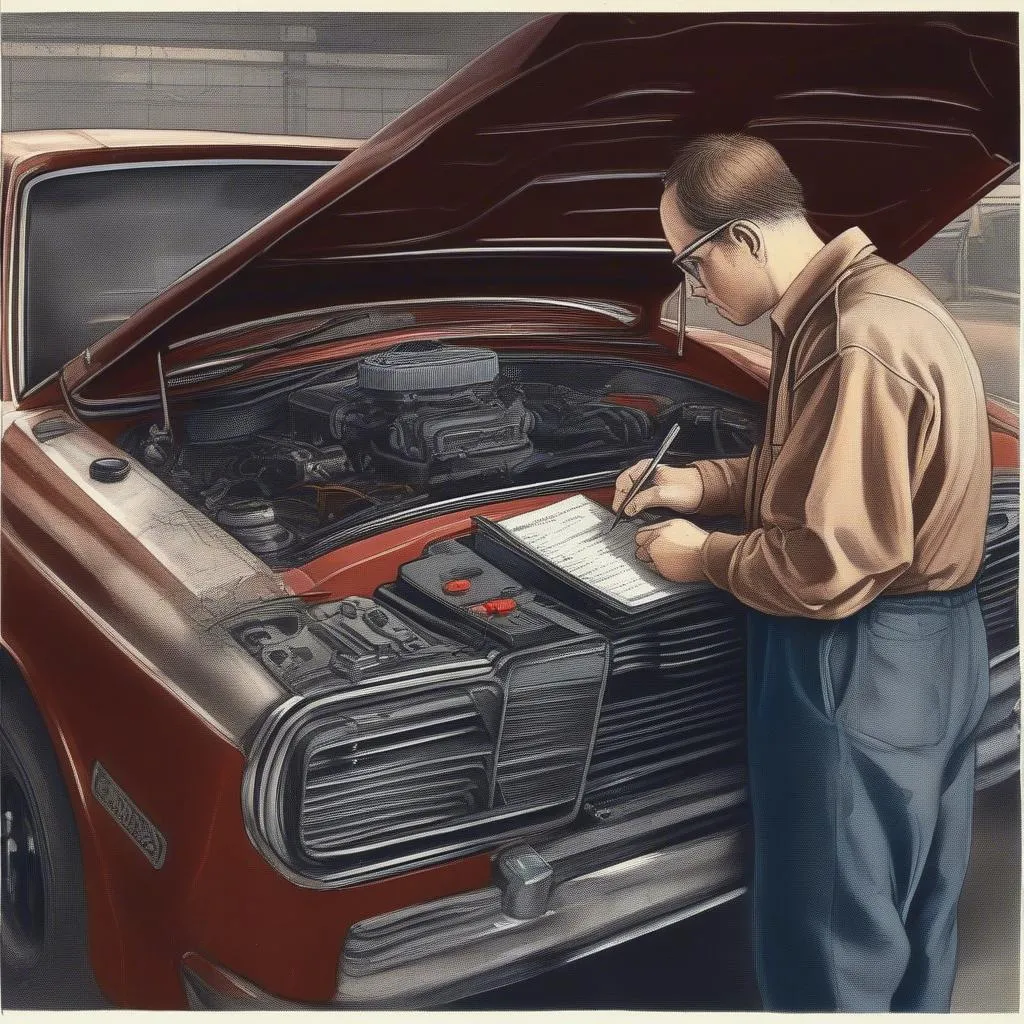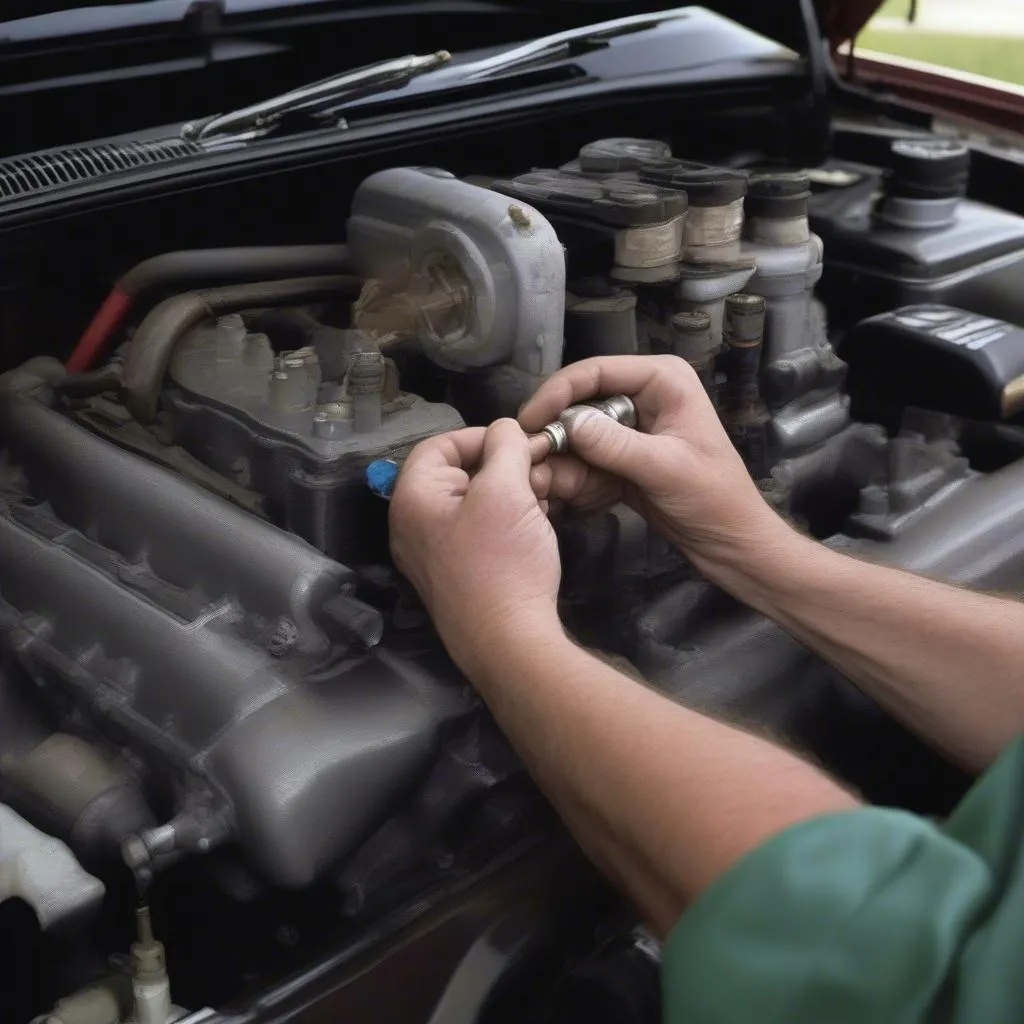Have you ever been driving down the road and suddenly your Chevrolet starts sputtering and misfiring? You check your dashboard and see a dreaded “Check Engine” light illuminated, along with a code that reads “P0305.” What does this mean? Is your car on the verge of a complete breakdown? Don’t worry, we’re here to help you decipher this code and understand what it takes to get your Chevy back on the road.
Understanding Chevy OBD Code P0305
The “P” in P0305 stands for “Powertrain,” indicating that the code relates to the engine or transmission. The “03” signifies a misfire, while the “05” pinpoints the problem to cylinder number 5. So, the code P0305 indicates a misfire in cylinder 5 of your Chevrolet engine.
What Does a Misfire Mean?
A misfire occurs when a cylinder doesn’t burn fuel properly, resulting in a loss of power and potential damage to the engine. This can happen for a variety of reasons, from faulty spark plugs to clogged fuel injectors.
Common Causes of Chevy OBD Code P0305
1. Faulty Spark Plugs
Spark plugs are essential for igniting the air-fuel mixture in your engine. Over time, they can wear down or become fouled by carbon buildup, leading to misfires. If the spark plug in cylinder 5 is faulty, it’s highly likely you’ll encounter the P0305 code.
2. Clogged Fuel Injectors
Fuel injectors deliver fuel to the engine cylinders. If they become clogged, they may not be able to deliver the right amount of fuel to cylinder 5, resulting in a misfire.
3. Damaged Ignition Wires
Ignition wires carry the electrical signal from the ignition coil to the spark plugs. If they are damaged or corroded, the signal may be weak or interrupted, leading to a misfire.
4. Faulty Ignition Coil
The ignition coil is responsible for generating the high voltage needed to fire the spark plugs. If the coil for cylinder 5 is malfunctioning, it won’t be able to provide the necessary spark, causing a misfire.
5. Vacuum Leaks
A vacuum leak in the intake manifold can disrupt the air-fuel mixture, leading to a misfire.
6. Low Compression
Low compression in cylinder 5 can be caused by various factors, including worn piston rings, a damaged valve, or a blown head gasket.
How to Fix Chevy OBD Code P0305
Before you start replacing parts, it’s crucial to diagnose the problem accurately. Here’s a step-by-step approach:
-
Inspect the Spark Plug: Start by inspecting the spark plug in cylinder 5. Check for wear, fouling, or damage. If the spark plug is faulty, replace it with a new one.
-
Test the Ignition Wires: Inspect the ignition wires for cracks, damage, or corrosion. If they are damaged, replace them.
-
Check the Ignition Coil: Use a multimeter to test the resistance of the ignition coil. If it’s not within the specified range, replace the coil.
-
Inspect the Fuel Injectors: If the spark plug, ignition wires, and ignition coil are all in good condition, you may have a clogged fuel injector. Use a fuel injector cleaner to try and clear the blockage. If that doesn’t work, you may need to replace the fuel injector.
-
Check for Vacuum Leaks: Carefully inspect the intake manifold for cracks or loose connections. Use a vacuum gauge to test for leaks. If you find a leak, repair it immediately.
-
Perform a Compression Test: If all else fails, a compression test can help determine if cylinder 5 has low compression. If the compression is too low, you may need to replace the piston rings, valves, or head gasket.
Tips for Preventing Chevy OBD Code P0305
- Regular Maintenance: Regular maintenance is crucial for preventing misfires. This includes changing the spark plugs and air filter at the recommended intervals.
- High-Quality Fuel: Use high-quality fuel to keep your fuel injectors clean and prevent clogging.
- Use a Fuel Injector Cleaner: Consider using a fuel injector cleaner every few months to help keep your fuel injectors free of deposits.
- Avoid Aggressive Driving: Excessive acceleration and hard braking can strain the engine and increase the risk of misfires.
 Spark Plug Fouling
Spark Plug Fouling
FAQs About Chevy OBD Code P0305
Q: Can I drive with a P0305 code?
While it may be tempting to ignore the “Check Engine” light, driving with a P0305 code can lead to further damage to your engine. It’s best to get it checked out by a qualified mechanic as soon as possible.
Q: How much does it cost to fix a P0305 code?
The cost of fixing a P0305 code can vary depending on the cause of the misfire and the labor costs in your area. Replacing a spark plug can be as cheap as $10, while replacing an ignition coil or fuel injector can cost several hundred dollars.
Q: Can I fix the P0305 code myself?
While it’s possible to diagnose and repair some of the causes of a P0305 code yourself, it’s important to have the necessary tools and experience. If you’re not comfortable working on your car, it’s best to take it to a qualified mechanic.
What’s Next?
If you’re still experiencing a Chevy Obd Code P0305, it’s time to seek professional help. Contact us at [Phone number] or [Website] for expert diagnostics and repair solutions. We can help you get your Chevrolet back on the road and running smoothly again.
We hope this article has been helpful in understanding Chevy OBD code P0305. If you have any questions or concerns, please feel free to leave a comment below.
 Chevrolet Engine Diagnostics
Chevrolet Engine Diagnostics
Related Articles:
Remember, regular maintenance and prompt attention to warning signs can save you time, money, and potential engine damage.

